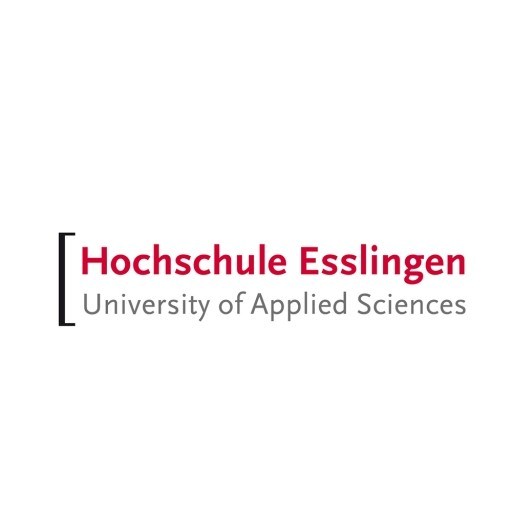Photos of university / #aaustudieliv
Embedded Software Systems is a specialized master's degree programme offered by Aalborg University that focuses on the design, development, and implementation of embedded software for a wide range of applications, including consumer electronics, automotive systems, healthcare devices, industrial automation, and the Internet of Things (IoT). The programme provides students with in-depth knowledge of embedded systems architecture, real-time operating systems, hardware-software integration, and software engineering principles tailored for resource-constrained environments. Throughout the course of study, students learn to develop efficient, reliable, and secure embedded software solutions by applying advanced programming skills, system modeling, and debugging techniques. The curriculum emphasizes hands-on experience through project-based learning, enabling students to work on real-world problems and collaborate with industry partners. This approach ensures that graduates are well-prepared to meet the challenges of designing embedded systems that are increasingly complex and integral to modern technology infrastructure. The programme also covers topics such as embedded hardware design, low-level programming, sensors and actuators, power management, and communication protocols, equipping students with a comprehensive understanding of both hardware and software aspects of embedded systems. With a strong focus on innovation and technological development, the programme aims to produce professionals capable of designing next-generation embedded solutions for various industry sectors. Graduates of the Embedded Software Systems programme are highly sought after by employers in technology-driven companies worldwide, thanks to their expertise in developing embedded applications that are efficient, scalable, and safe. The programme is suitable for students with a background in engineering, computer science, or related fields who are passionate about embedded technology and want to contribute to the advancement of intelligent systems that improve everyday life.
The Embedded Software Systems master's program at Aalborg University offers a comprehensive education focused on the design, development, and integration of software for embedded systems. This programme equips students with in-depth knowledge of embedded hardware and software architectures, real-time operating systems, and programming languages such as C and C++. Throughout the course, students learn to develop reliable and efficient software solutions tailored for embedded devices used in various industries, including automotive, healthcare, robotics, and IoT.
The curriculum covers essential topics such as embedded system design principles, hardware-software co-design, low-level programming, and software verification and validation. Students gain practical experience through project-based learning, working on real-world case studies and collaborating with industry partners. This hands-on approach ensures graduates are well-prepared to meet the challenges of modern embedded systems development.
In addition, the programme emphasizes system safety, security, and energy efficiency, reflecting current trends and demands in embedded system applications. Students also explore contemporary issues such as parallel processing, wireless communication protocols, and system optimization techniques. The programme culminates in a master's thesis where students conduct independent research on a relevant embedded systems topic, demonstrating their ability to apply theoretical knowledge to practical problems.
The Embedded Software Systems master's program is designed to provide students with multidisciplinary competencies that integrate computer engineering, electronic systems, and software engineering. Graduates of this programme will be capable of working in multidisciplinary teams, designing innovative solutions, and contributing to technological advancements in embedded systems. The programme is ideal for students passionate about technology, innovation, and creating intelligent systems that improve everyday life and business processes.
Program requirements for Embedded Software Systems at Aalborg University include a solid foundation in computer science and engineering principles, with specific emphasis on embedded systems design, real-time operating systems, and software development methodologies. Applicants are expected to hold a relevant Bachelor's degree or equivalent qualification that demonstrates proficiency in programming languages such as C and C++, as well as hardware architecture and digital systems. Prior knowledge of software engineering, electronics, and mechatronics is highly advantageous. The program also requires applicants to demonstrate problem-solving skills and the ability to work independently and collaboratively on complex technical projects. Competence in mathematics, particularly in algorithms, data structures, and systems modeling, is essential. Proficiency in English is mandatory, with standardized test scores such as TOEFL or IELTS being accepted as proof of language skills. The admission process may also consider relevant work experience in embedded systems or related fields. Students should be motivated to engage in innovative research and development activities within embedded software systems, including tasks like software integration, debugging, optimization, and validation of embedded devices. The program emphasizes interdisciplinary knowledge, combining aspects of software engineering, hardware design, and systems integration to prepare students for careers in advanced embedded systems development, including applications in automotive, robotics, consumer electronics, and industrial automation. Furthermore, applicants are encouraged to demonstrate their familiarity with current industry standards and software tools, such as embedded development environments, version control systems, and simulation software. No specific prerequisites regarding previous coursework are explicitly mandated beyond a relevant technical background, but a demonstrated interest or experience in embedded systems projects, internships, or industrial collaboration is beneficial. The selection process prioritizes candidates with a strong academic record, practical experience, and a clear motivation to work within the field of embedded software systems.
Financing studies for the Embedded Software Systems master's program at Aalborg University are primarily supported through a combination of Danish and European funding options, as well as individual student financing solutions. Students from the European Union (EU) and the European Economic Area (EEA) can benefit from the Danish student grant and loan scheme, known as SU (Statens Uddannelsesstøtte), which provides financial support during their studies. This scheme is designed to assist students with living expenses, and eligibility depends on factors such as age, previous education, and residency status. In addition to SU, students may also apply for various scholarships, grants, and sponsorships offered by the university or external bodies. Aalborg University frequently collaborates with industry partners and governmental agencies to provide funding opportunities for talented students, including scholarships based on academic excellence and research potential. International students outside the EU/EEA are usually required to finance their studies through personal funds or private scholarships, as they generally do not qualify for Danish governmental support. The university offers guidance and counseling to prospective and current students regarding available financial aid options, application procedures, and deadlines. Furthermore, students are encouraged to explore external scholarship opportunities from organizations, foundations, and industry sponsors relevant to engineering and embedded systems fields. Work-study programs and part-time employment opportunities are also available for eligible students to supplement their income during studies. In summary, financing Embedded Software Systems studies at Aalborg University is facilitated through a comprehensive support system including government grants, scholarships, external funding sources, and employment options, aimed at making the program accessible to a diverse student body.
This master's degree program in Embedded Software Systems at Aalborg University is designed to prepare students for advanced roles in the development and integration of embedded systems across various industries. The program focuses on the theoretical foundations and practical skills necessary to design, implement, and evaluate embedded software solutions that are reliable, efficient, and optimized for resource-constrained environments. Students will explore a broad spectrum of topics, including real-time systems, software engineering, hardware-software integration, sensor technologies, and communication protocols. The curriculum emphasizes hands-on project work, fostering innovation and problem-solving abilities by engaging students in real-world challenges through project-based learning. Throughout the program, students have opportunities to collaborate with industry partners, participate in research projects, and develop a comprehensive understanding of current trends and future developments in embedded systems. Graduates of this program are equipped to work in diverse fields such as automotive, aerospace, consumer electronics, healthcare, and robotics, where embedded systems play a crucial role. The program also aims to develop strong interdisciplinary skills, enabling students to understand both the technical and managerial aspects of embedded software projects. With a solid foundation in both software and hardware integration, graduates are well-prepared for careers in systems development, research, and innovation, contributing to the advancement of technology in modern society.






